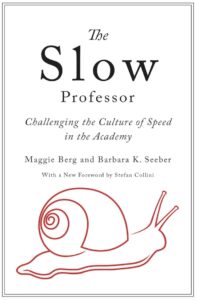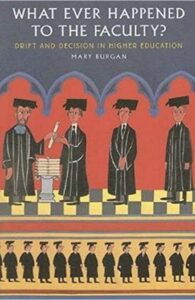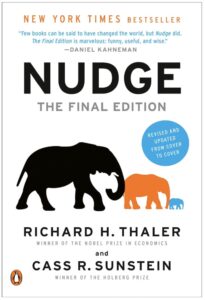
Maggie Berg and Barbara K. Seeber
If there is one sector of society that should be cultivating deep thought in itself and others, it is academia. Yet the corporatisation of the contemporary university has sped up the clock, demanding increased speed and efficiency from faculty regardless of the consequences for education and scholarship. In The Slow Professor, Maggie Berg and Barbara K. Seeber discuss how adopting the principles of the Slow movement in academic life can counter this erosion of humanistic education. Focusing on the individual faculty member and his or her own professional practice, Berg and Seeber present both an analysis of the culture of speed in the academy and ways of alleviating stress while improving teaching, research, and collegiality. The Slow Professor will be a must-read for anyone in academia concerned about the frantic pace of contemporary university life.

What Ever Happened to the Faculty?: Drift and Decision in Higher Education
Mary Burgen
In this provocative work, Mary Burgan surveys the deterioration of faculty influence in higher education. From campus planning, curriculum, and instructional technology to governance, pedagogy, and academic freedom, she urges far greater consideration for the perspective of the faculty. Burgan evokes the pervasive atmosphere of charge and counter-charge on U.S. campuses, where competition trumps reason not only in athletics but also in research, faculty recruitment, and fund-raising. Relating this “winner-take-all” mentality to the overspecialization of faculty and to overreliance on non-tenure track instructors, Burgan suggests that improving life on campus depends on faculty members’ successful engagement with their administrative colleagues as well as their students.

Richard H. Thaler and Cass R. Sunstein
Since the original publication of Nudge more than a decade ago, the title has entered the vocabulary of businesspeople, policy makers, engaged citizens, and consumers everywhere. The book has taught us how to use thoughtful “choice architecture”—a concept the authors invented—to help us make better decisions for ourselves, our families, and our society. This revised edition offers a wealth of new insights about a wide variety of issues that we face in our daily lives—COVID-19, health, personal finance, retirement savings, credit card debt, home mortgages, medical care, organ donation, climate change, and “sludge” (paperwork and other nuisances we don’t want, and that keep us from getting what we do want)—all while honoring one of the cardinal rules of nudging: make it fun!